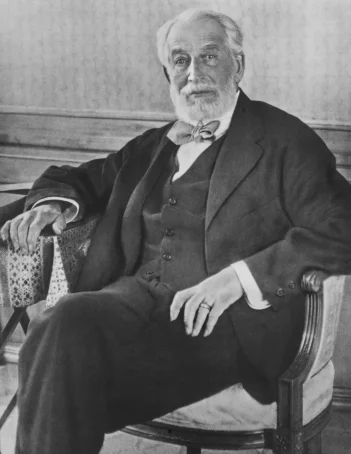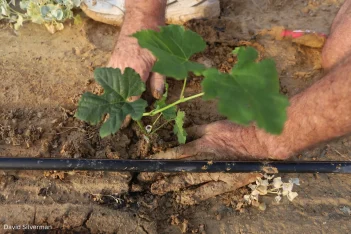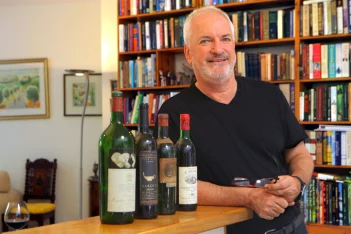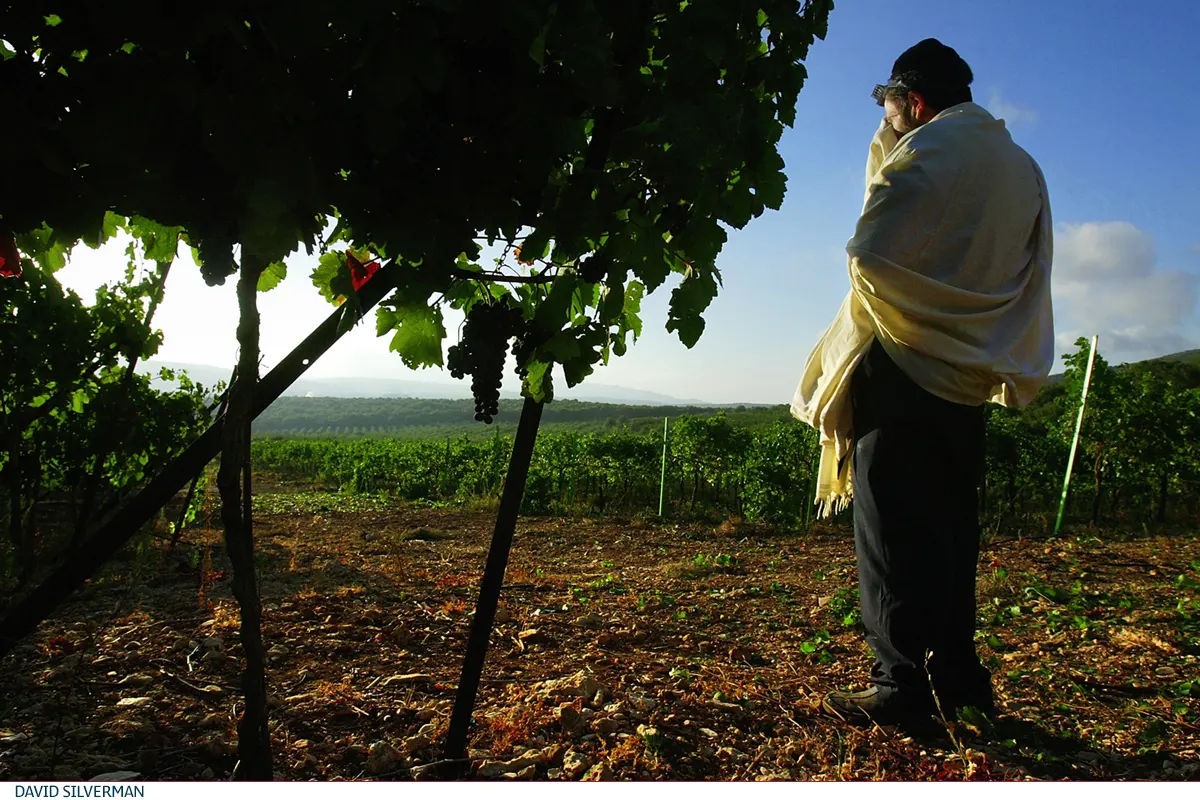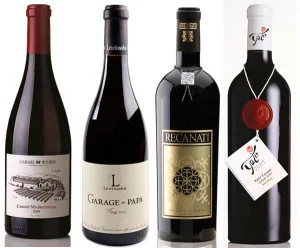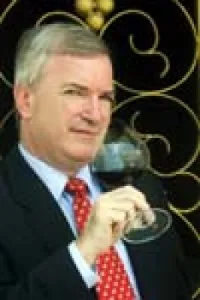I recently received a message offering me the opportunity to see the film ‘Redemption’, about the Israeli winemakers of Judea and Samaria. This is the area also known as Greater Israel, the West Bank, ‘the Territories’, the ‘Occupied Territories’, the Palestine Authority or even Palestine, depending on where you stand on the political spectrum. In the new wine map it is known as the Central Mountains, which describes the topography, but overlooks the political storm below the surface. Whichever is used immediately flags up your political belief without a filter. Of course, I was interested to see the film, especially as it is the third film I have seen this year on winemaking in the Levant, the eastern basin of the Mediterranean.
The borders of the Eastern Mediterranean wine regions are unique in that they have been uniquely forged and scared by religion and war. This is true of Greece and Turkey, the divided island of Cyprus, as well as Israel and Lebanon. The West Bank is no less fraught. This is the playground of Israel and the Palestinians. However forget the strife of today & the recent past. The East Med region was the cradle of wine that gave wine culture to the world. It is instructive to understand that the wine connoisseur of 2,500 years ago would have known the wines coming out of what are now the countries of Cyprus, Greece, Israel, Lebanon and Turkey. They would most likely be more familiar with the wines of the region then, than they are now. They certainly drank more in those days, than they do today. Furthermore wine was part of the daily life of the Ancient Israelites as it is in modern day Israel. It has accompanied the Jewish story from Biblical times until today.
The first film I saw was ‘Wine and War’ about wine in Lebanon. It mentioned Israel in the unflattering position of the enemy, but it was a fascinating film about the history of wine in Lebanon. We certainly share some of the Ancient History before religious nationalism took root and divided the winelands into them and us. Unfortunately the unhappy situation of Lebanon today, is more from self-inflicted wounds. Not everything can be laid as Israel’s door. Their internal enemies seem to be so much more potent and damaging than the external ones. If they are honest with themselves, they know it, but it no less tragic because of that and grossly unfair to Lebanon’s wonderful winemakers. We certainly wish the wineries better days.
Next, I saw the film ‘Holy Wine’. This provided a beautiful insight into Israeli wine, even though it ended up as an opinionated rant against the idea of Kosher and Kosher wine. It was a film made for the hedonistic, wine intelligentsia of secular Tel Aviv and was a statement against religious coercion. It was also intentionally unbalanced. It did not mention wines from the West Bank at all, nor were any religious winemakers interviewed.
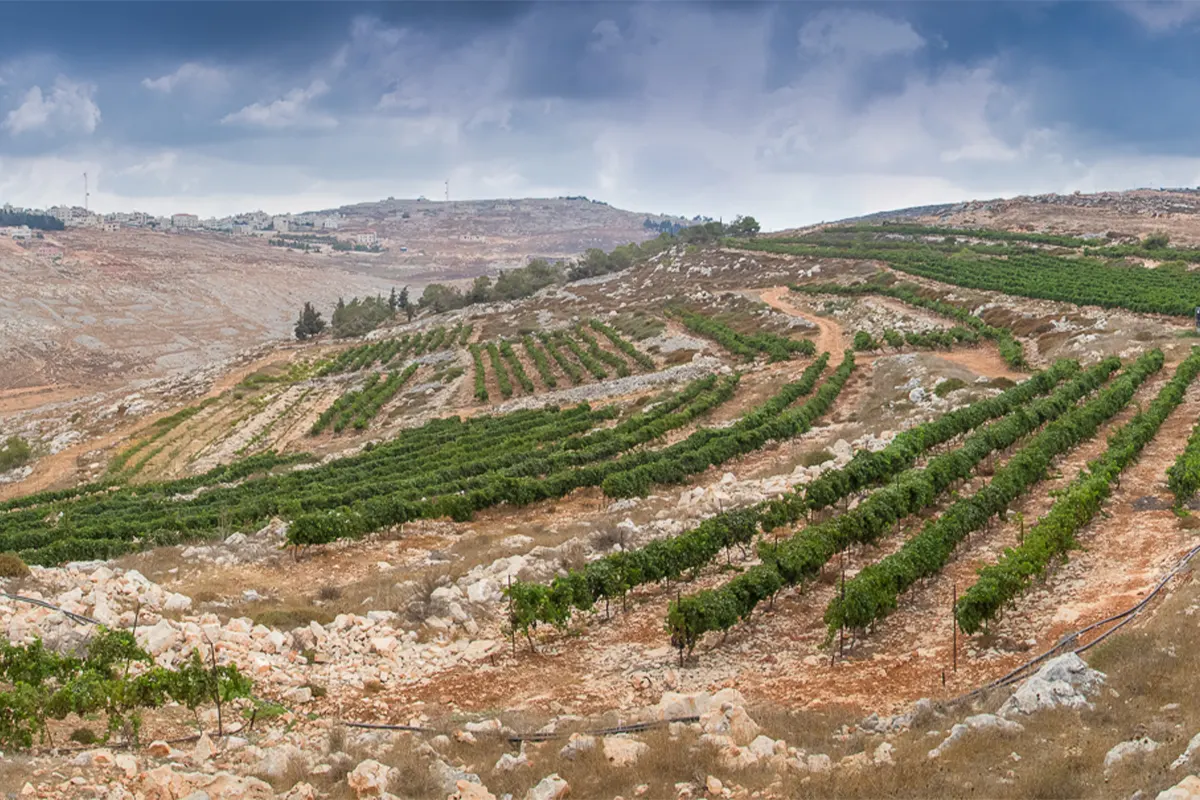
However, cometh the hour, cometh the film. ‘Redemption’ is a documentary made by Ian McGonigle, who hails from the Republic of Ireland, that more than makes up for the deficiency. He offers a window from the outside, looking in at the settler winemakers of the Judea and Samaria region. He says: “I decided to visit these wineries and interview the winemakers to better understand their beliefs and motivations for settling these areas; and in particular, to get a sense of the symbolic and spiritual importance of wine in their lives.” It is not really a film about wine, the wine region or even about kosher wine, but it is more about the motivations of winemaking in the politically charged region of the West Bank. If Holy Wine was Tel Aviv speaking, Redemption is the view from Jerusalem. Such is the division of modern Israel. Views symbolized by two cities, 45 minutes apart, with totally different narratives and different beliefs. We are a country of contrasting, even opposing, individual opinions, bound together only by a common language. It is normally said that wine is a combination of a person, place and a vintage. It appears this is also true of the West Bank, though ‘the place’ in this instance, is charged with Biblical roots, a dose of religious Zionism and a Messianic fervor that raises the land to be more important than anything else.
It is an extremely complicated issue. The Ben and Jerry’s situation shows that feelings run high on both sides. I don’t believe in boycotts either way, but I do believe each consumer should be free to make their decisions based on personal considerations. Many restaurants in Tel Aviv will boycott wines from the West Bank, but these are more than made up by religious Jews in the great kosher wine centers of New York, Paris and Jerusalem. The more the lefties in Tel Aviv or the BDS abroad, target Israeli wine, the more their supporters will buy wines from this region. As a result Israeli wines from the disputed areas have not suffered in any way from world opinion. In fact they have thrived. I understood this better when I sat in a Sukkah with someone who told me proudly that he will only buy wine from ‘Yehuda v’ Shomron’ (Judea & Samaria).
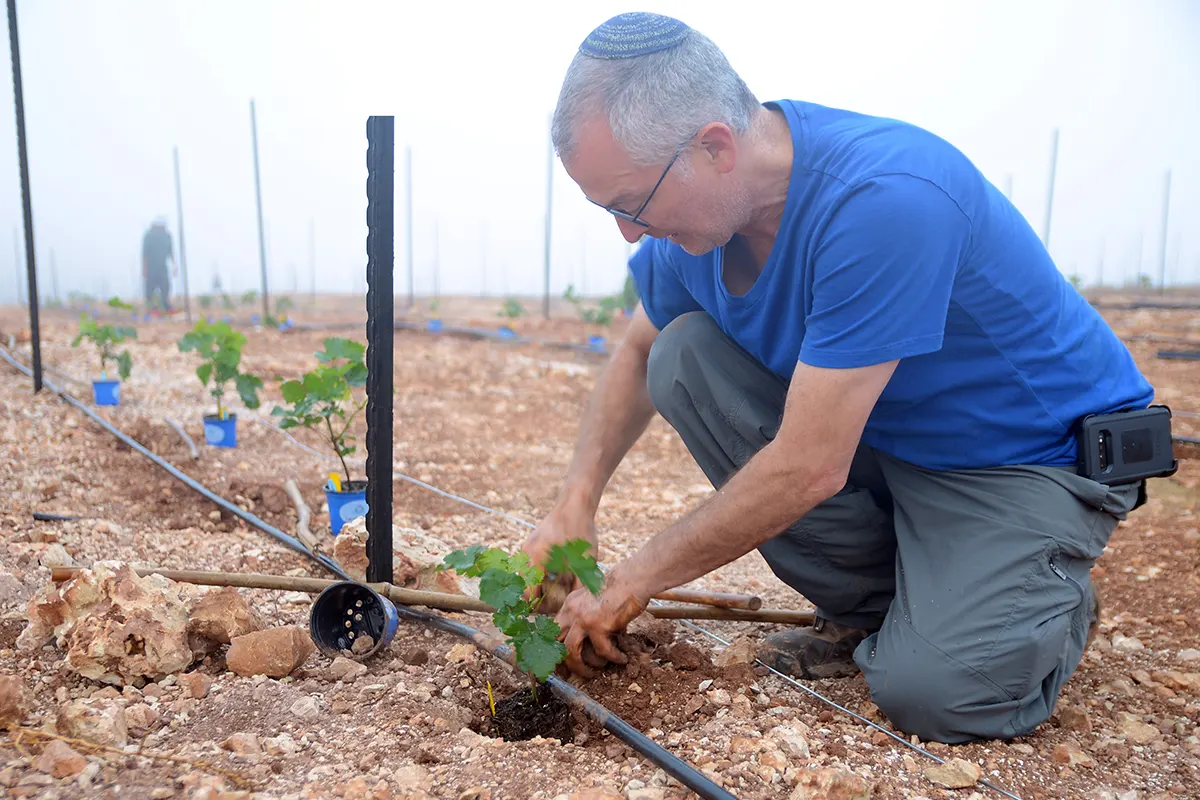
The wine revolution in the West Bank began comparatively late. The rush of newly planted vineyards and newly founded wineries, only occurred after the turn of the millennium. I was working for Carmel Winery when the milestone Carmel Har Bracha Vineyard Merlot 2002 was launched. This was the first time a West Bank wine was lauded as being from the West Bank. Later, Carmel shied away from the idea and the wine was not reproduced, but it did give the prospective growers an insight into the quality and potential.
Today the West Bank wineries range from Drimia Winery at Susya, in the southern Hebron Hills to Har Bracha Winery in the Samarian Hills. The largest of them is Psagot Winery north of Jerusalem, which is a very successful powerhouse. There are possibly 25 wineries in all, and even more garagistes or domestic wineries. Not one of them existed before the year 2000. Today there are approximately 5,000 dunams (500 ha) of wine vineyards in the West Bank, which is nearly 10% of Israel’s total. There are also Palestinian wineries in the region, one of which even dates back to 1885. That is Cremisan Winery made in the Salesian Monastery at Beit Jalla, near Bethlehem, but the film papers over the cracks and does not go there. The Palestinian issue is barely mentioned. The film has an objective to enter the souls of the Jewish winemakers in the Territories, which it does successfully. It was not a production to dig and delve into the wider political issues and discuss the complications, though they do receive cursory mentions.
Certainly the growers and winemakers feel they are doing God’s bidding, fulfilling the grand plan and living out the prophecy contained in the Prophets, in our time. Sometimes I believe the official State Judaism has strayed somewhat from the kind, inclusive Judaism of the Prophets, but here the prophecy fits in exactly with the narrative. From a PR point of view, it makes a lot more sense to think of the settlers as nice wine growing types, than the previous image of American new immigrants wandering around brandishing Kalashnikov rifles, as though it was the Wild East.
There is nothing new in political settlement through planting vineyards. In the 1880’s Baron Edmond de Rothschild sponsored the planting of vineyards as a statement of the new Jewish agriculture and what was to become Labor Zionism. Their concept was working the land to make it your own.
After the 1967 Six Day War, vines were planted on the Golan Heights (from 1976) and the success of the Golan Heights Winery worldwide hastened the acceptance of the Golan Heights as a newly settled region both amongst Israelis and abroad. Incidentally the film bracketed the Golan Heights with the West Bank, though I personally do not see it. The Golan was settled by farming pioneers. The move was not driven by religion. There is no equivalent moral problem on the Golan, as there are no Palestinians. Furthermore, even the most fervent leftie would have no one to give the Golan back to, as Syria has fragmented and changed drastically, and Assad is a monster. If the Golan is still bracketed by the world as ‘Occupied Territory’, it is a massive injustice, a monumental failure of Israeli diplomacy and a perfect example of the world’s blindness. The Golan is not in the same category by any reasonable measure.
There were certain aspects of the film that drew my attention. I was fascinated to learn that the Hebrew word ‘mitnahelim’, does not imply settlers in the colonial sense, but refers more to taking possession and inheriting. The translation to the English word ‘settlers,’ does not convey this. When Amichai Lourie of Shiloh Winery talks about the privilege of working in the vineyards in this Biblical area, you can certainly appreciate the pride and importance he feels in being part of the prophecies being fulfilled. I personally warm to the historical angle. So when Erez Ben Saadon of Tura Winery explains ‘all we are doing is adding modern day vineyards. The wineries are everywhere’ referring to the many wine presses discovered all over from over 2,000 years ago, I could relate to that.
However, I am a wine guy. I want to learn about the quality of the vineyards, the varieties that grow well there, the wine influences that motivate the winemakers, not just the religious ones and the best quality and most promising wineries. This was not a film that gave me any answers, but in all truth, that was not the film’s purpose. However it did give a window into the religious Zionist settlement movement in the West Bank, by highlighting the Messianism of the settlement enterprise through the prism of its wineries and winemakers. If the makers of ‘Holy Wine’ wanted to disparage the idea of making liquid religion, the main characters in Redemption delight in it, and this is their whole reason for being.
Does it help having G-d in your corner? Well, they are certainly making some very fine wines. For example, Drimia, Gush Etzion, Gvaot, Har Bracha, Psagot, Shiloh, Tanya and Tura Wineries win numerous awards in domestic Israeli competitions, year after year. Their success is greater than their representation of the Israeli wine market, so it is very noticeable. Abroad too, Psagot, Gvaot and Shiloh have received international recognition at the very highest level at the Decanter World Wine Awards in London. Their wines have scored 95 points and won prestigious gold medals in this, the largest, and arguably most prestigious wine competition in the world. To show it was no fluke they have each achieved this twice.
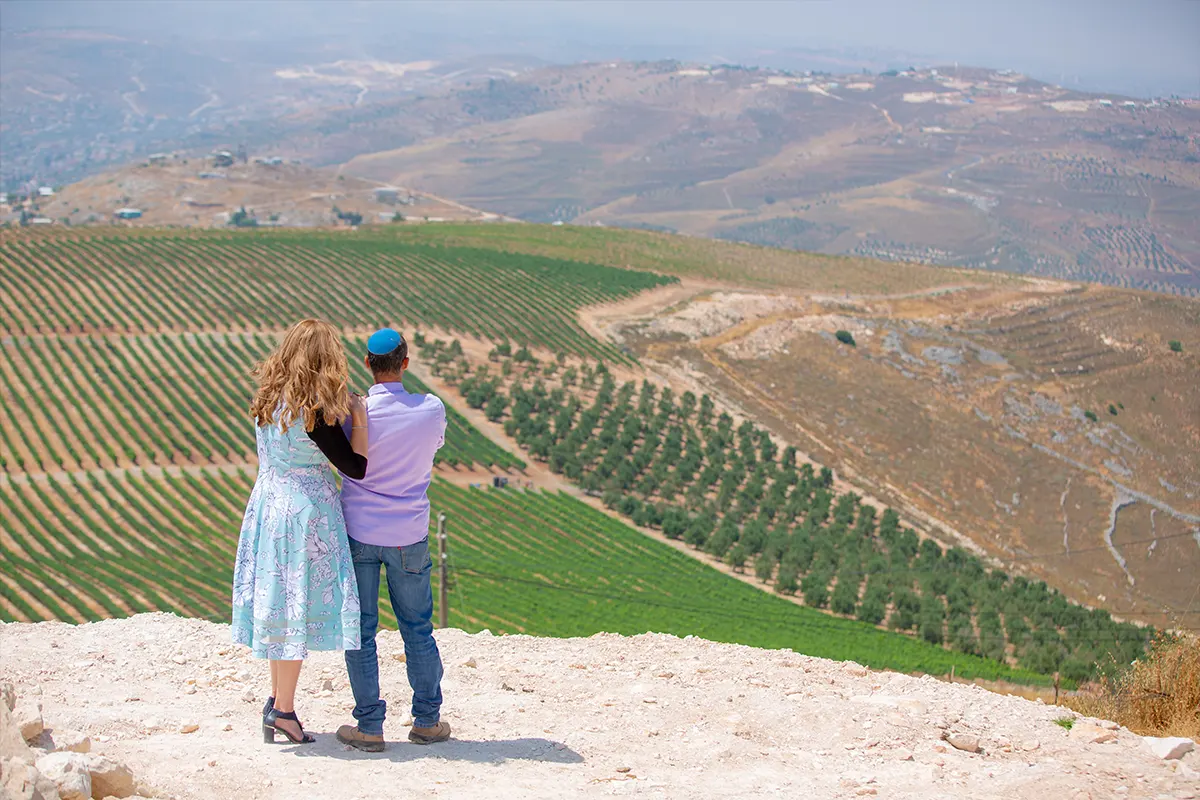
So the wines are impressive. The passion of the winemakers is palpable. The history is Biblical and the terroir is amazing. The high elevation, sparse, shallow soils on a bedrock of limestone, represents some of Israel’s finest wine growing areas. From a wine point of view they have achieved wonders in twenty years. The politics of it all is not so simple. Sometimes I get the feeling we are one people divided into three countries. There is the country of Tel Aviv, the country of wider Israel and the country of Judea & Samaria. The films Holy Wine and Redemption emphasize the divide perfectly. It is not a crack but a chasm between two world views. A fascination with wine, the variety of the different wine growing regions and the passion and individuality of the winemakers does unite in a way, because wine crosses borders. When things become too fraught, it is always best to get back inside the wine bubble. Redemption though is worth seeing to understand the importance of wine and vineyards in the settlement of the mountainous areas in the West Bank. Here the idea of man, a place, his grapes and wine, is reinforced by religion. You will understand this toxic cocktail better if you see the film.
Adam Montefiore is a wine industry insider turned wine writer, who has advanced Israeli wine for 35 years. He is referred to as the English voice of Israeli wines. He is the wine writer of the Jerusalem Post. www.adammontefiore.com












